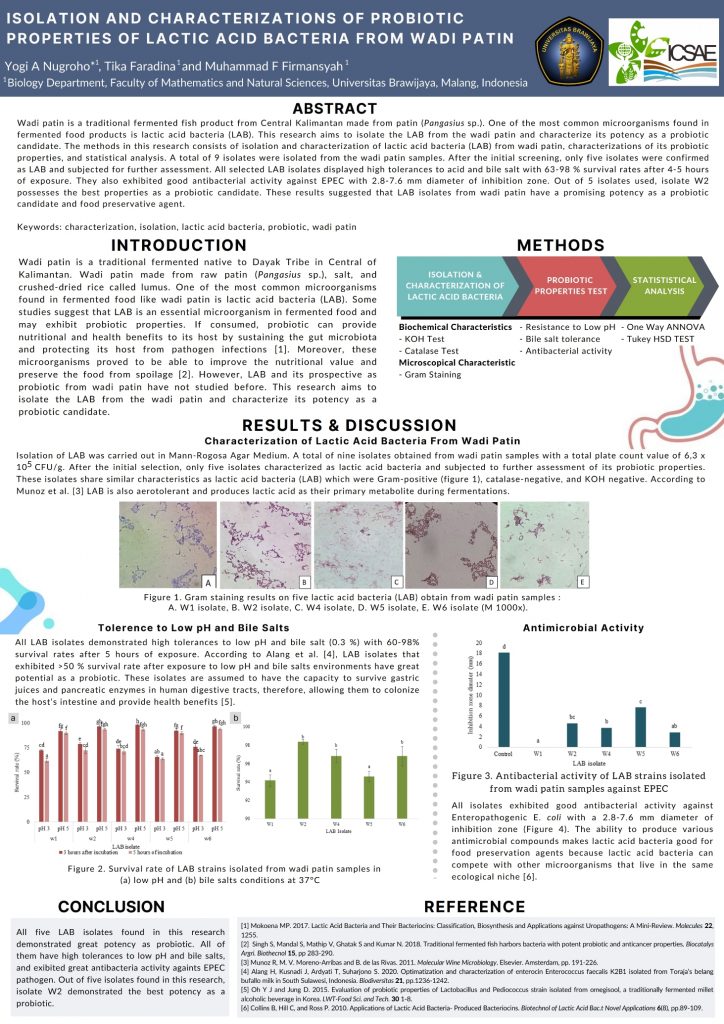Paper ID: 84
ISOLATION AND CHARACTERIZATIONS OF PROBIOTIC PROPERTIES OF LACTIC ACID BACTERIA FROM WADI PATIN
Authorship
Yogi A. Nugroho1*, Tika Faradina1 and Muhammad F. Firmansyah1
1Department of Biology, Faculty of Mathematics and Natural Sciences, Universitas Brawijaya, Malang, East Java, Indonesia
nugrohoyogiadhi@gmail.com
Abstract
Wadi patin is a traditional fermented fish product from Central Kalimantan made from patin (Pangasius sp.). One of the most common microorganisms found in fermented food products is lactic acid bacteria (LAB). This research aims to isolate the LAB from the wadi patin and characterize its potency as a probiotic candidate. The isolation of LAB from wadi patin was carried out using serial dilution and spread plate method on Mann Rogosa Sharpe (MRS) agar medium supplemented with CaCO3. Isolates that formed a clear zone around its colony were chosen and screened based on its microscopic and biochemical characteristics. Isolates with Gram-positive, catalase-negative, and KOH-negative characteristics were confirmed as LAB and selected for further study on its probiotic properties. The characterization of probiotic properties on LAB isolates was carried out by assessing its tolerances to acid and bile salt, and also its antibacterial activity against Enteropathogenic E. coli (EPEC). A total of 9 isolates were isolated from the wadi patin samples. After the initial screening, only five isolates were confirmed as LAB and subjected for further assessment. All selected LAB isolates displayed high tolerances to acid and bile salt with 63-98 % survival rates after 4-5 hours of exposure. They also exhibited good antibacterial activity against EPEC with 2.8-7.6 mm diameter of inhibition zone. Out of 5 isolates used, isolate W2 possesses the best properties as a probiotic candidate. These results suggested that LAB isolates from wadi patin have a promising potency as a probiotic candidate and food preservative agent.
